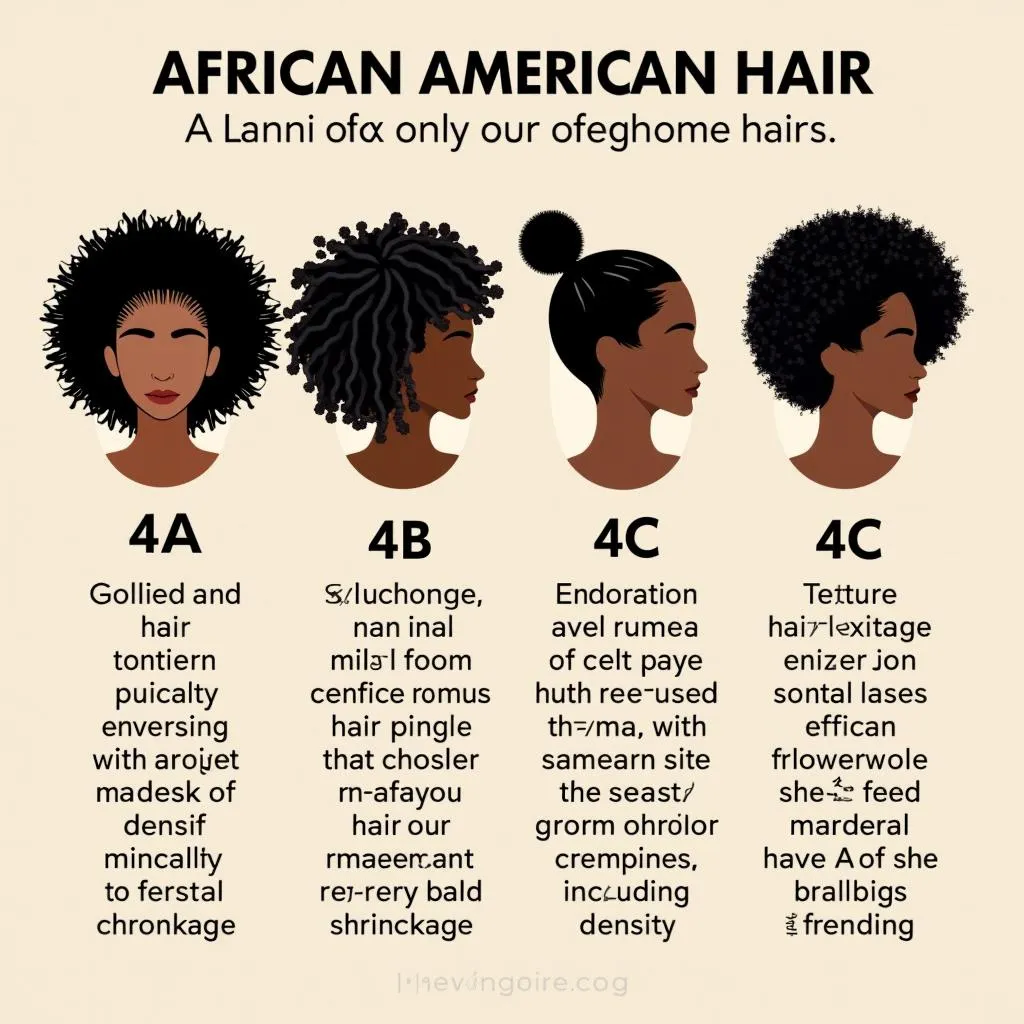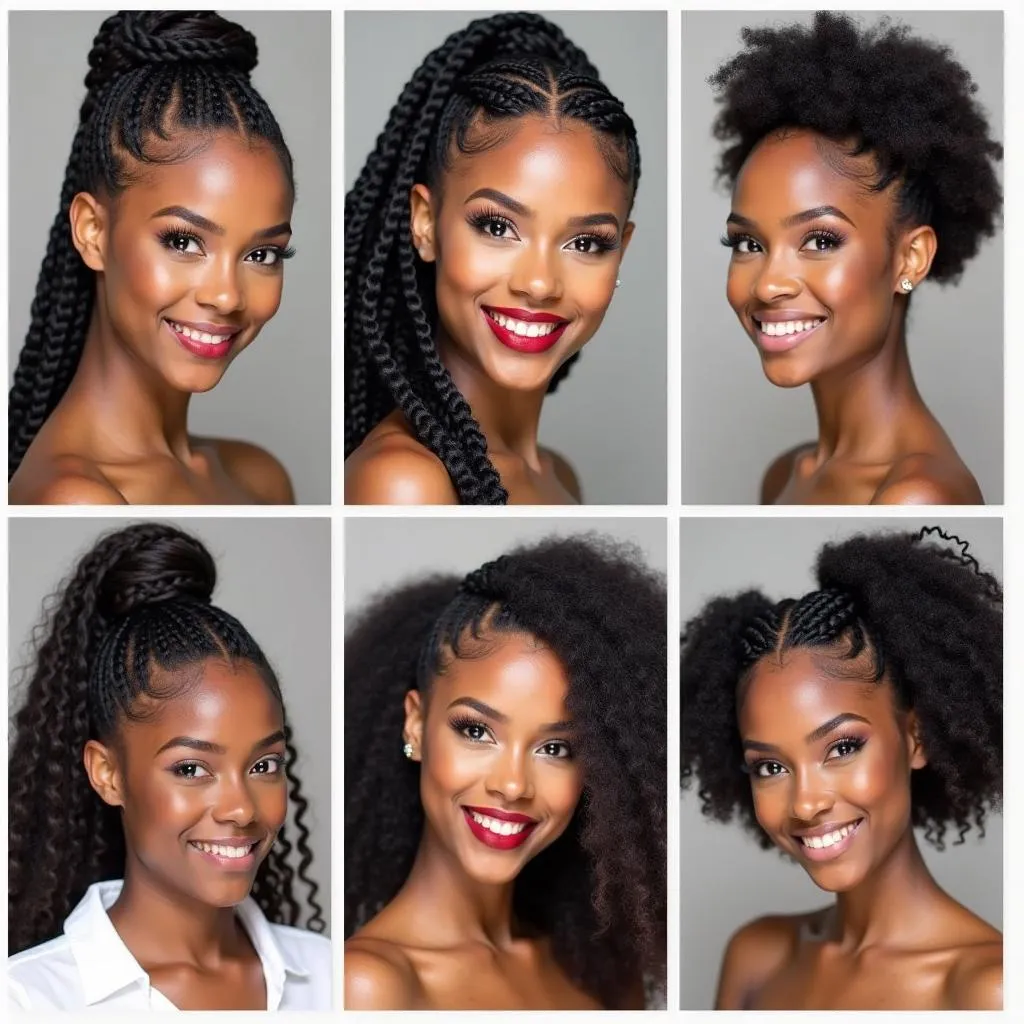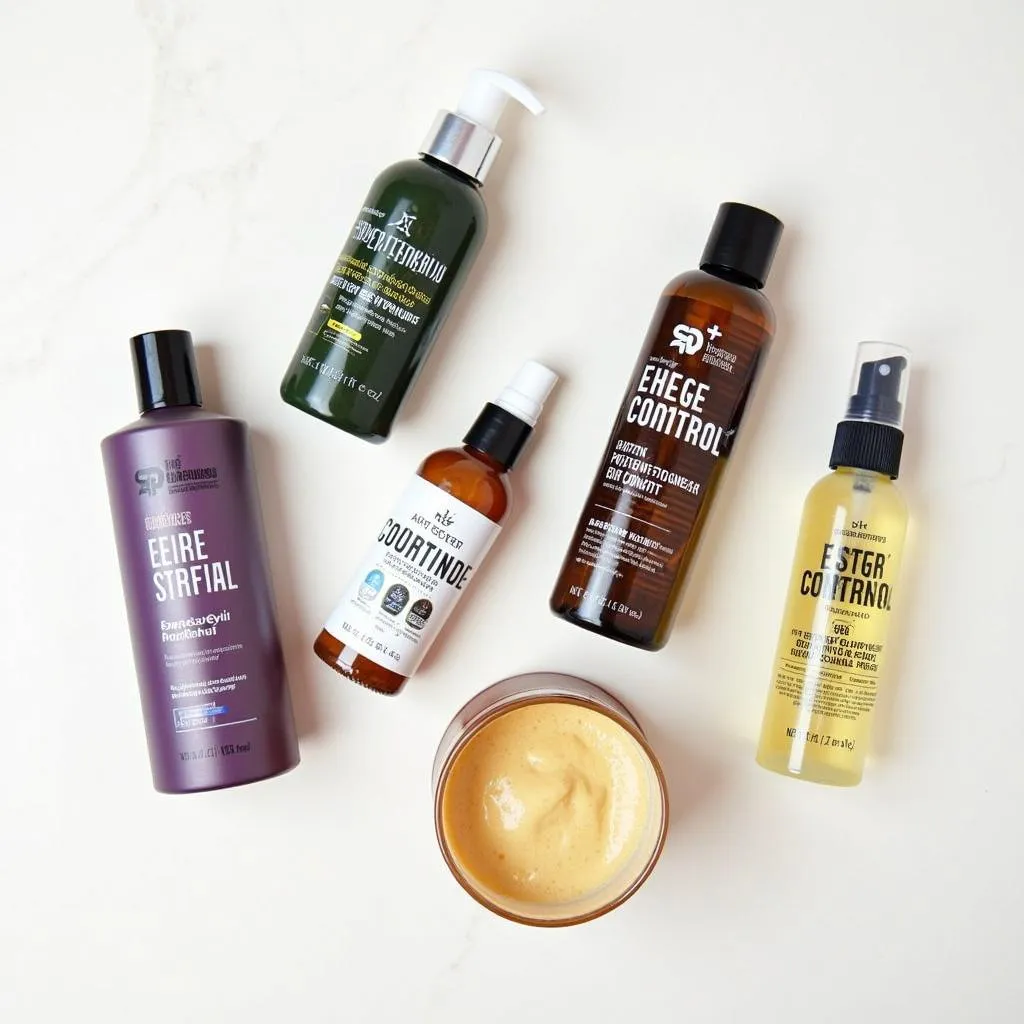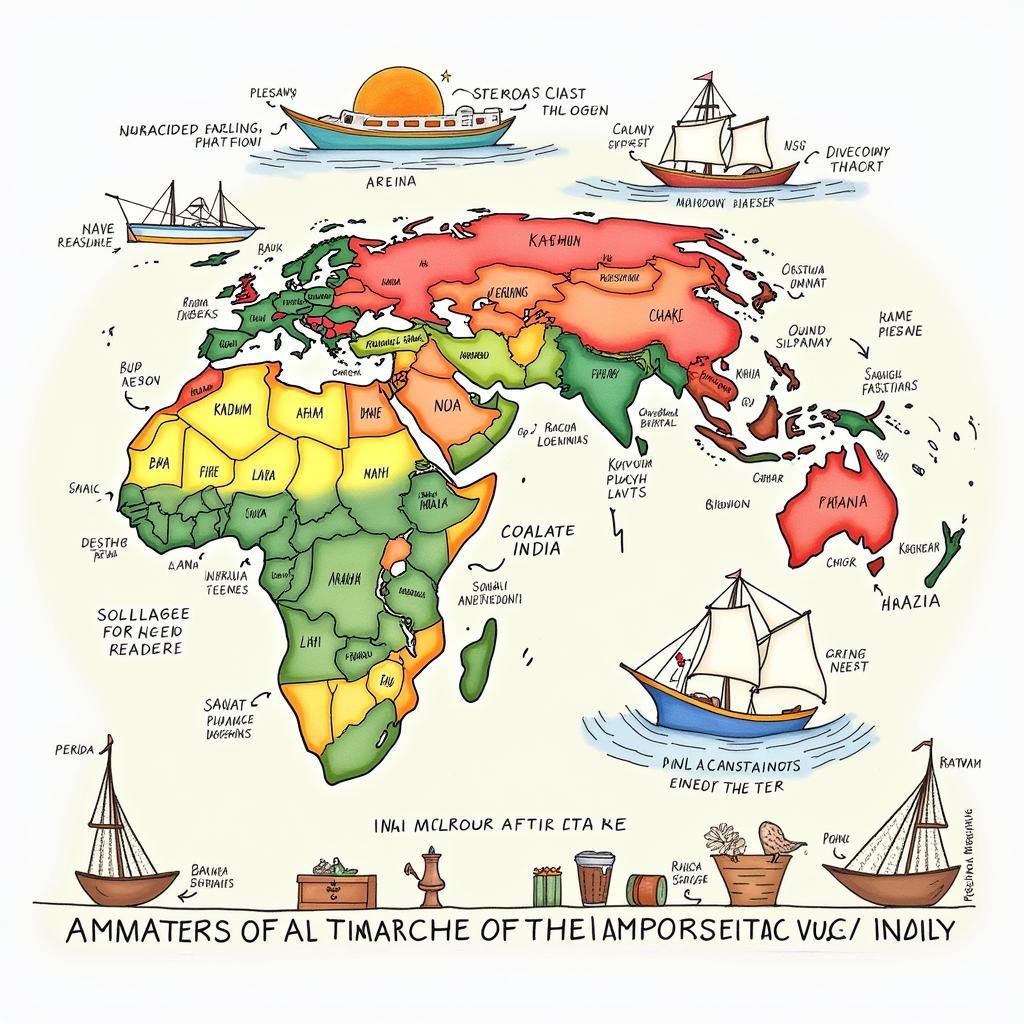The Ultimate Guide to African American Hair Care
African American Hair Care: A Comprehensive Guide
African American hair is known for its unique texture, versatility, and beauty. From tight coils to loose waves, there’s a wide range of hair types that require specific care and attention. Whether you’re rocking a natural afro, braids, locs, or a stylish weave, understanding your hair’s unique needs is crucial for maintaining its health and vibrancy. This comprehensive guide will delve into the intricacies of African American Hair Care, providing you with expert tips, product recommendations, and insights to help you achieve your hair goals.
Understanding African American Hair Types
The first step to effective hair care is understanding your hair type. African American hair is generally classified into four categories:
- Type 4A: This hair type has tightly coiled S-shaped curls that are well-defined and springy. It tends to have a fine texture and can shrink significantly when wet.
- Type 4B: This hair type features tightly coiled Z-shaped curls that are often less defined than 4A curls. It has a denser texture and can experience significant shrinkage.
- Type 4C: This hair type is characterized by tightly packed, coily strands that have a zig-zag pattern. It has the tightest curl pattern and is prone to shrinkage and dryness.
- Type 4C (Sub-Classification): This sub-classification includes hair textures that are similar to 4C but with even tighter coils and a higher density. It is the most delicate and prone to breakage.
Each hair type has its own unique characteristics and requires specific care. It’s essential to use products and techniques that are tailored to your individual hair type to achieve the best results.
 African American Hair Types Chart
African American Hair Types Chart
Essential Hair Care Practices
No matter your hair type, there are some fundamental hair care practices that are essential for maintaining healthy and vibrant African American hair.
Cleansing and Conditioning
Cleansing your hair removes dirt, oil, and product buildup. However, African American hair tends to be dry, so it’s important to avoid over-washing, which can strip your hair of its natural oils. Opt for a sulfate-free shampoo that is specifically formulated for African American hair.
Conditioning is crucial for replenishing moisture and detangling your hair. Deep condition at least once a week to provide your hair with an extra dose of hydration.
Moisturizing and Sealing
Moisturizing is key to combating dryness and maintaining the elasticity of your hair. Use a water-based leave-in conditioner or hair oil to hydrate your hair daily.
Sealing in moisture is just as important as moisturizing. After applying a water-based moisturizer, use a sealant, such as shea butter or a hair oil, to lock in the moisture and prevent it from evaporating.
Detangling
Detangling your hair is an important step in preventing breakage. Use a wide-tooth comb or a detangling brush to gently detangle your hair, starting from the ends and working your way up to the roots. Detangle your hair when it’s wet and has conditioner in it to minimize breakage.
Protective Styling
Protective styling is a great way to minimize manipulation and protect your hair from damage. Braids, twists, locs, and weaves are all popular protective styles that can help you retain length and prevent breakage. However, it’s important to ensure that your protective styles are not too tight, as this can lead to hair loss and scalp damage.
 Various African American Protective Hairstyles
Various African American Protective Hairstyles
Common Hair Concerns and Solutions
Dryness and Brittle Hair
Dryness and brittleness are common concerns for African American hair. To combat dryness, deep condition regularly, use a leave-in conditioner, and seal in moisture with a hair oil. You can find excellent [african american hair dry and brittle] resources online.
Breakage and Split Ends
Breakage can be caused by a variety of factors, including dryness, heat styling, and chemical treatments. To prevent breakage, be gentle when detangling, use a heat protectant spray before heat styling, and trim your ends regularly.
Hair Loss
Hair loss can be a symptom of various underlying conditions, including stress, hormonal imbalances, and certain medications. If you’re experiencing excessive hair loss, it’s important to consult a dermatologist or trichologist to determine the underlying cause and receive appropriate treatment.
Styling African American Hair
African American hair is incredibly versatile and can be styled in a myriad of ways. From natural styles to protective styles and everything in between, there are endless possibilities to explore.
Natural Hairstyles
Embracing your natural texture is a beautiful and empowering choice. There are countless natural hairstyles to choose from, including afros, twist-outs, braid-outs, and wash-and-go styles.
Protective Styles
Protective styles are a great option for minimizing manipulation and protecting your hair from damage. Braids, twists, locs, and weaves are all popular protective styles that can be worn in a variety of ways.
Heat Styling
Heat styling can be used to straighten, curl, or add volume to your hair. However, it’s important to use heat sparingly and always use a heat protectant spray to minimize damage.
Products for African American Hair
There are countless hair products on the market that are specifically formulated for African American hair. Here are some essential products to include in your hair care routine:
- Sulfate-free Shampoo: Cleanses the hair without stripping its natural oils.
- Deep Conditioner: Provides intense hydration and nourishment.
- Leave-in Conditioner: Moisturizes and detangles the hair.
- Hair Oil: Seals in moisture and adds shine.
- Edge Control: Smooths down edges and flyaways.
- Heat Protectant Spray: Protects the hair from heat damage.
Finding the right products for your hair can be a journey. Don’t be afraid to experiment with different brands and products to find what works best for you. You can explore various [african american shopping websites] online for a wide selection of hair care products.
 Essential Hair Products for African American Hair
Essential Hair Products for African American Hair
Conclusion
Taking care of African American hair is a journey that requires patience, consistency, and a deep understanding of your hair’s unique needs. By following these tips and using the right products, you can achieve healthy, vibrant, and beautiful hair that you’ll love to show off. Remember, embracing your natural texture and prioritizing healthy hair habits will go a long way in achieving your hair goals.
FAQs
1. How often should I wash my hair?
It’s generally recommended to wash African American hair once a week or every other week. However, you can adjust your wash schedule based on your hair type, scalp condition, and lifestyle.
2. What are some good protective styles for African American hair?
Braids, twists, locs, and weaves are all great protective styles for African American hair.
3. How can I prevent breakage?
Be gentle when detangling, use a heat protectant spray before heat styling, and trim your ends regularly to prevent breakage.
4. What are some common mistakes to avoid when caring for African American hair?
Over-washing, using heat styling tools too frequently, and not moisturizing enough are all common mistakes to avoid.
5. How can I find a good stylist who specializes in African American hair?
Ask for recommendations from friends, family, or online communities. Look at the stylist’s portfolio and read reviews before booking an appointment.
6. What are some trendy African American hairstyles for 2019?
You can find a wide variety of inspiring [African American hairstyles 2019] online.
7. Where can I find wigs specifically designed for smaller head sizes?
There are several retailers that offer [African American wigs for small heads].
For any further assistance or inquiries, feel free to contact us at Phone Number: +255768904061, Email: [email protected], or visit our address at Mbarali DC Mawindi, Kangaga, Tanzania. Our dedicated customer care team is available 24/7 to assist you.

